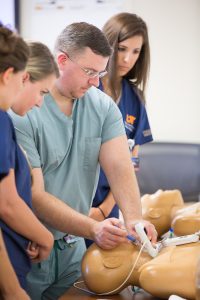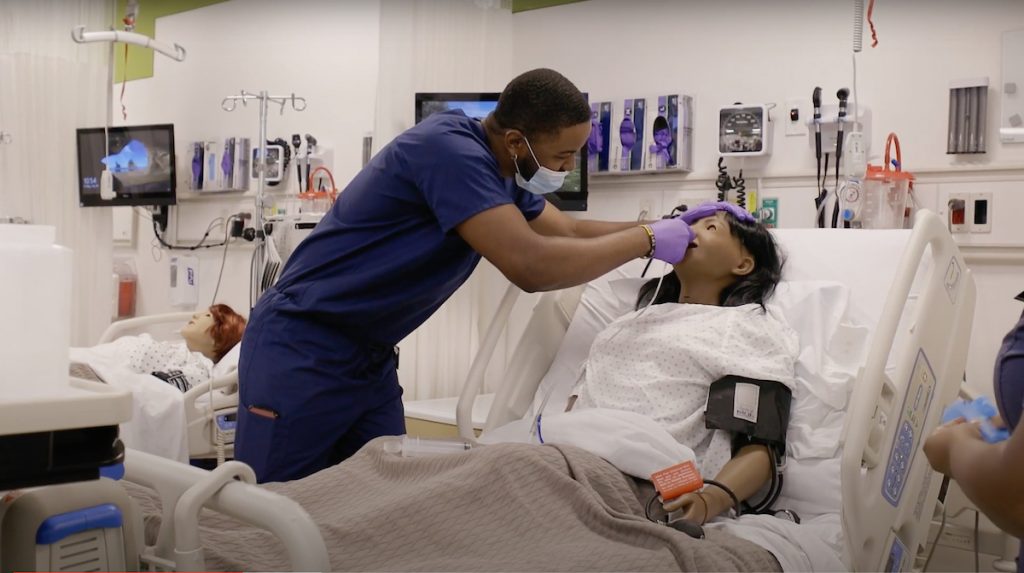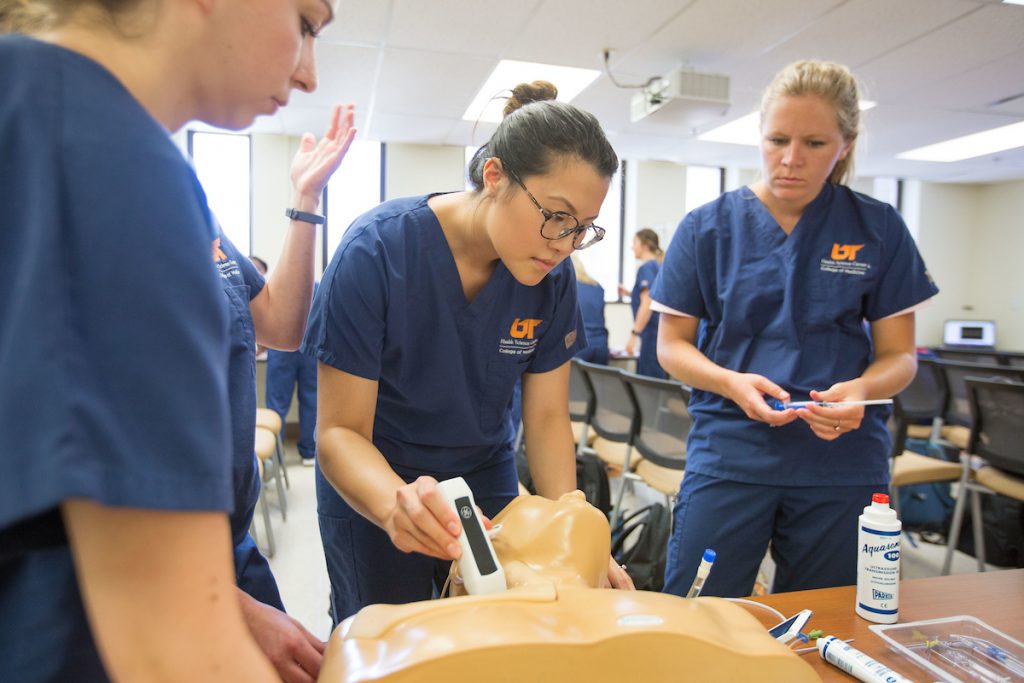U.S. News & World Report ranked the profession of physician assistant as the Number 1 Best Job, Number 1 Best STEM Job, and Number 1 Best Health Care Job in 2021.

Kristopher Maday, MS, PA-C, program director and associate professor in the Physician Assistant (PA) Program at the University of Tennessee Health Science Center, already felt that way, but he was proud to hear that others do, too. He believes not only does the UTHSC PA program offer a cost-effective and time-efficient option for a health care career, but its graduates are primed to play a major role in helping to ease Tennessee’s shortage of health care practitioners, particularly in rural and medically underserved areas.
“We are the only state-funded, public PA program in Tennessee,” Maday said. “And so, we take it as part of our mission that it’s not just about tuition generation and revenue, but it’s about training health care providers to be able to go back into the communities in Tennessee, and take care of Tennesseans. We prepare our students to really be on the frontlines of primary care.”
The UTHSC Physician Assistant Program accepted its first cohort in 2014, and is set to graduate its 6th in December. The program is two years, a shorter period than most PA programs, admits 30 students per class, and offers a master’s-level degree. Physician assistants serve as an extension of the medical team, Maday said. Licensed by the state, physician assistants are usually supervised by physicians, and can cover about 80% of what is seen in a primary care setting, including doing histories and physicals, writing prescriptions, ordering diagnostic studies or outpatient therapies, and more.
The statistics for the UTHSC program, which has been part of the College of Medicine since 2016, are impressive. It has a 95% first-time pass rate on the Physician Assistant National Certifying Exam, and achieved a 10-year accreditation from the Accreditation Review Commission on Education for the Physician Assistant, Inc., in 2019, the highest accreditation given.

As the program progresses, Maday said, it will focus on continuing to recruit students from Tennessee to boost its current 48% percent retention rate for graduates practicing in the state.
“Because we do rotations in Memphis, Nashville, Chattanooga, and Knoxville, obviously that’s where the students are typically more comfortable, and so a lot of them have set up in those metropolitan areas,” he said. “But there also are some who have gone into the Jackson region and some of the outlying communities that maybe aren’t in the major metropolitan areas, because that’s where they are from, and that’s where they live, that’s where they have family, or that’s where they have community.”
Maday said the program is working to create partnerships with undergraduate academic institutions across Tennessee to identify and attract potential students early, who might want to practice in the rural areas of the state. “Getting that exposure and talking to the students when they’re relatively young in their undergraduate career is really going to help us identify Tennesseans to stay in the state, come to our program, and then go back to their communities, that is our ultimate goal,” he said.
According to data from the Association of American Medical Colleges, the United States could see an estimated shortage of between 21,400 and 55,200 primary care physicians by 2033. Currently, one in five Tennesseans is without adequate access to primary health care.

The program had a record number of applicants this year. “We’ve had just over 2,200 applicants for 30 spots, which is about 400 or 500 more than what we had years past,” Maday said. “Hopefully, our reputation as a program here is helping with that.”
“Our main mission is serving the underserved,” he said. “What we’re trying to instill in our students is a love of service, where we’re teaching them the medicine, we’re teaching them how to be functional in physician practices, but then, we also really try to get them to do community outreach as a program.” PA students have worked with the Memphis Farmers Market doing vaccine information sessions, and are vaccine-certified, so they can administer the COVID-19 vaccine if needed.
Because the program is aiming to help fill gaps in the health care workforce across Tennessee, it is focusing on health equity and the social determinants of health, Maday said.
“I really want to make sure that students who come here to get trained are going to be well-versed in the social determinants of health, understanding health care disparities, and then hopefully taking that as part of their ethos into their professional careers to where they give back and they identify those issues at heart that can start to change the decades of problems that have been manifested as a result of our American health care,” he said.
UTHSC PA Program At-a-Glance
- Founded in 2014
- 30 students per cohort
- Part of UTHSC College of Medicine since 2016
- 95% 1st time pass rate on national certification examination
- 48% of graduates are practicing in Tennessee
- 47% of current class is from Tennessee
- 10-year national accreditation granted in 2019
- Students complete rotations in Memphis, Nashville, Chattanooga, and Knoxville
